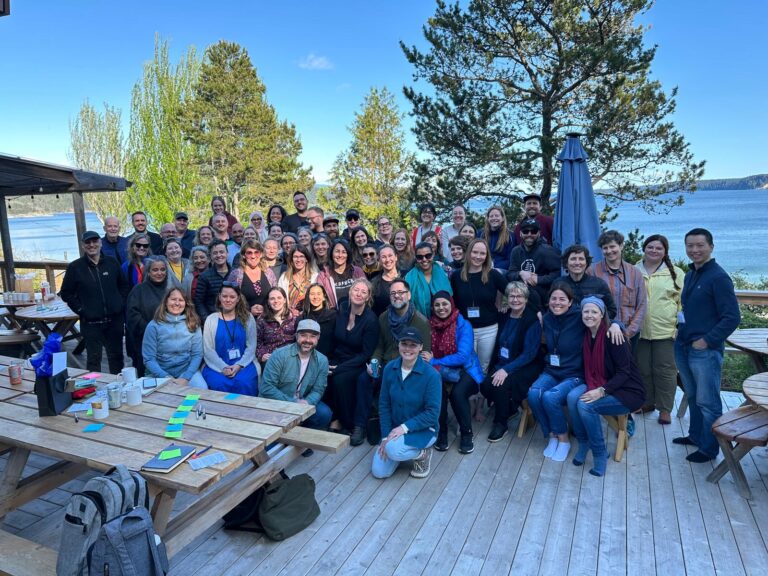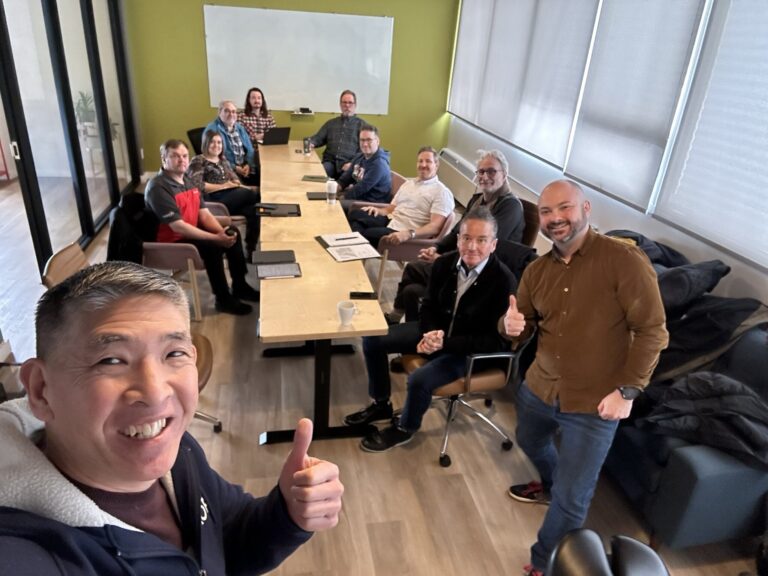16 August 2017
Resurrecting the Ordinary with Civic Social Innovation
By Erin Welk, Civic Social Innovation Lead, Urban Matters
Al Etmanski is an inspiring mentor for us at Urban Matters – as a poignant social change agent, he reminds us: “we do not live in a leaderless society. Our society is full of leaders who commit without fanfare, without degrees and without mandates. They take their cues from each other rather than from those at the front of the room, top of the pyramid or head of the parade.”
These ordinary citizens Al refers to are demanding more from their local governments. The urgency grows amidst complex and messy challenges in our communities – climate change, affordable housing/homelessness, finding economic resilience, the opioid crisis, infrastructure deficits, to name just a few. As a result, Community is demanding government respond differently to deliver impactful and inclusive social outcomes, while also enhancing capacity for community and citizens to act.
Enter Civic Social Innovation. It is a concept we’ve been dancing with for the last few months. Local governments that embrace social innovation invite collaboration between all levels of government, businesses, non profit organizations, and citizens. They act as catalysts and brokers – experimenting with alternative ways of delivering services by enabling social enterprises or community organizations. And they engage citizens in open and participatory ways that can accelerate and empower their action.
We are inspired by stories of social innovation in local governments across the globe. The Elizabeth Project in Amersfoort, the Netherlands, turned citizen negativity into productivity by asking citizens to meaningfully contribute to a park redesign. The local government asked citizens to take charge of the park design, allocated a budget, set deliverables, and then got out of the way. What resulted was a truly citizen-driven process that was quicker, less expensive, achieved a wider consultation than when normally led by the municipality, and resulted in a fantastic park.
Closer to home, in Victoria, the Mayor’s Social Enterprise and Social Procurement Task Force is revising their procurement policy to generate maximum social value. The City has identified about $40 to $60 million dollars-worth of services procured annually that could better contribute to the viability of businesses that employ vulnerable and disadvantaged populations, and/or businesses that are taking unique approaches to social problems. This sort of City leadership can move a community towards long term cohesion and resilience.
What is the role of organizations like Urban Matters? We are positioned as community translators – by introducing civic social innovation we are aiming to bridge gaps that exist between local governments and community actors to unlock better community and social outcomes. Thus, we are working closely with local governments who are aiming to improve their responses to affordable housing, climate change, multi-modal transportation, citizen engagement, and increased costs of service delivery. Here is a sample of what we are working on:
- Amplifying Strategy Implementation with Organizational Change Management – Let’s face it. Most local government strategy documents gather dust. Although not solely the fault of local government authors, we know that organizational structures, process, allocation of resources and funding, and inconsistent decision making all contribute to the erosion of real impact from strategy. And local governments don’t always do a great job of supporting community members to act on that strategy. We are hearing that in order to respond, Community needs consistent messaging and decision processes across departments, willingness to experiment, and visionary leadership. To do so, we are facilitating change management processes to help integrate departments and ensure staff are empowered to move towards the same types of community outcomes.
- Utilizing Partnership Brokering to Improve Service Delivery – We are observing that in some instances, an appropriate role for local governments is to broker partnerships amongst community organizations to deliver services. We are helping local governments facilitate the flip from a ‘doing to broker’ role by assessing the strengths and capacity gaps of community organizations, and identifying what local governments need to ensure they can effectively deliver a needed community service.
- Maximizing Social Value with Social Enterprise Solutions – Increasingly, we are seeing that there is a role for social enterprises to bolster how local governments are tackling tough challenges. As a result, we are creating and piloting a framework for how local governments can support the emergence of enterprises that support affordable housing or improve transportation mobility.
The above represent early examples of how we are supporting local governments explore social innovation. Up next, we’ll dive into the details of using change management to support local government climate change action.
***Our title respectfully adapted from a turn of phrase we like: “A resurrection of the ordinary” was coined by Marilynne Robinson, describing citizens who are hard at work creating consensus in our communities about a range of issues.
Categories:
Social Innovation




